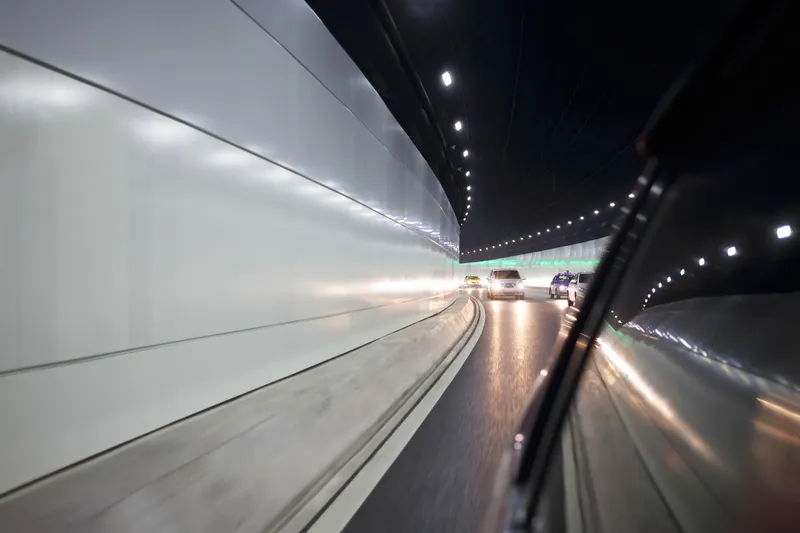
Indra has chosen an automatic incident detection system from Citilog for the UK's new Silvertown Tunnel, under construction beneath the River Thames in London.
Citilog supplies video based automatic incident detection solutions for tunnels, bridges and highways. The company will integrate its automatic incident detection (AID) system to help reduce congestion in and around the tunnel between the London borough of Greenwich, the peninsula area, and West Silvertown on the northern bank of the Thames.
The 1.4km-long twin-bore tunnel have two lanes per tunnel with dedicated lanes for heavy goods vehicles and buses. There will be no pedestrian or cycle access but a shuttle bus has been considered for cyclists.
The AID system, that includes 59 CCTV cameras, will enhance safety and incident management with real-time incident detection and response and also will minimise false alarms while maintaining high detection accuracy.
Using thousands of video clips will help train an advanced network to reduce false positives, allowing operators to focus on genuine emergencies. The AID system can also be easily upgraded and extended.
“Our long-standing partnership with Indra has been instrumental in providing the AID system for the Silvertown Tunnel,” said Volkert Samplonius, Citilog’s vice president for the Iberoamerica region, Israel, South Africa, Australia and New Zealand. “Our excellent detection rate, low false alarm rate and rapid incident response align perfectly with our commitment to safety and efficiency.”
Last autumn, Riverlinx CJV, a joint venture to which Transport for London (TfL) and Riverlinx SPV contracted the design and construction works for the project, awarded Indra a contract to equip the tunnel with its In-Mova Traffic platform and intelligent transport systems including the communication systems, the radio communications network and the traffic signals. Riverlinx CJV consists of Ferrovial Construction, BAM Nuttall and SK ecoplant.
The company’s technology is already used in London's 12 road tunnels that are managed by TfL. It is also being implemented in the Hindhead Tunnel for England’s road agency National Highways. Hindhead Tunnel is part of the 6km dual-carriageway that replaced one of the last remaining stretches of single-carriageway on the A3 road which connects London with the southern port of Portsmouth.








